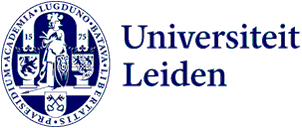
Executive Board column: interdisciplinary collaboration, from suspicion to snowball effect
How is interdisciplinary collaboration faring at Leiden University? And has disciplinarity been completely abandoned? I’d like to reflect on some concerns among colleagues and on our plans for the future.
In this column Annetje Ottow, Hester Bijl and Martijn Ridderbos give a peek behind the scenes at the Executive Board of Leiden University. What does their work involve? What makes them enthusiastic? What challenges do they face? Building a healthy and engaged learning community begins with sharing what you are up to. This time it’s Hester Bijl's turn.
Interdisciplinary collaboration is becoming increasingly important at Leiden University. This is unsurprising given that many of our current social challenges are complex and multidisciplinary by nature. And I can also see opportunities for scientific breakthroughs at the boundaries of disciplines. But with this focus on interdisciplinarity, I’ve also heard concerns from researchers: is disciplinary and fundamental research in Leiden under threat? Are we only going to focus on themes rather than curiosity-driven research?
‘We need enough funding for curiosity-driven, independent research’
Mixture
To get straight to the point: we are not dropping disciplinary research. It is important to continue working from good, strong disciplines – it says so in our Strategic Plan too. The University is a mixture of institutes that are disciplinary by nature and institutes that are more interdisciplinary in focus, such as LUC The Hague and LUCAS. As for the contrast between theme-focused, interdisciplinary, research and independent, disciplinary research: I can only see that ‘conflict’ to a limited extent. You can also do fundamental interdisciplinary research. This is with the caveat that enough funding remains available within and outside the University for independent, curiosity-driven research that doesn’t directly answer a certain question.
Germinate, grow and bloom
Independent is therefore the keyword for the ‘Kiem-hubs’ (Germination Hubs) that we plan to start after the summer. These should encourage small, bottom-up research initiatives across faculty boundaries and enable us to provide space for exciting combinations of researchers and ideas. An invitation to submit research proposals for these hubs is expected to be issued this spring. In the longer term we want to honour larger collaboration initiatives within ‘Groei’ (Growth) and ‘Bloei’ (Bloom) hubs; we are still considering the details. We also want to create physical spaces where people can meet and work together.
Budding life
The names of the hubs are all about budding life, and this is no coincidence. The Leiden soil for cross-disciplinary collaboration is fertile. The nine interdisciplinary programmes that started in 2020 are proof of that. They have attracted new researchers, made fantastic connections between academic disciplines and many have already received funding from the NWA or the EU. This is admirable, particularly because many internal hurdles had to be overcome to get the collaboration off the ground. There is also a wonderful snowball effect to be seen as more and more faculties are beginning to collaborate. Leiden Law School, for instance, which has now joined the LUMC’s research into regenerative medicine. We are going to talk to the programmes soon about the future and how they fit best within the University’s organisation.
Interdisciplinarity offers great opportunities but I appreciate that more support is needed. We also need to look at our internal systems. And we must do more to consider interdisciplinary collaboration in the recognition and rewards system within Academia in Motion, for example by recognising that initiating interdisciplinary collaboration takes time and energy. For now, we want to try to provide as much space as possible for interdisciplinary initiatives and to harness the enthusiasm that is clearly there.
To find out more about interdisciplinary collaboration and what the Interdisciplinary Programmes could mean for you, come to the ‘Interdisciplinary collaboration in Leiden’ event and become personally acquainted with the nine programmes.
